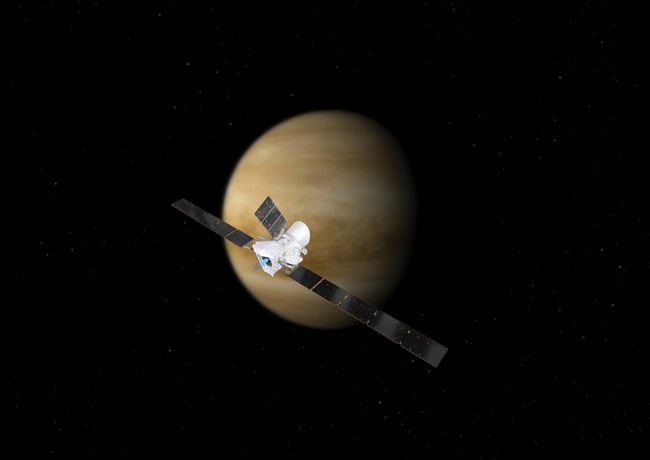Mission engineers fight to restore BepiColombo's engines to full power
The BepiColombo spacecraft, a joint effort between the European Space Agency (ESA) and the Japan Aerospace Exploration Agency (JAXA), is experiencing difficulties even before reaching its destination – Mercury. Due to a problem, the aircraft's engines no longer operate at full power. The management team is tasked with determining how this will affect upcoming maneuvers, including the planned flyby of Mercury later this year.
BepiColombo, which will be the second mission to orbit Mercury after NASA's Messenger probe, consists of two probes and a transfer module. Scientists hope that this mission will answer many questions about the smallest and least studied planet in the solar system. Despite the fact that BepiColombo has already flown around Mercury, it has not yet entered the planet’s orbit.
Among the main mysteries of Mercury: how a planet located so close to the Sun can be so hot, but at the same time there is ice in its polar craters; reasons for the planet's weak magnetic field; the nature of the mysterious cavities visible on its surface.
The 7.7 billion kilometer journey to Mercury is not an easy one for BepiColombo. The spacecraft will have to make a total of nine planetary flybys before it enters Mercury's orbit. And according to ESA, a problem that occurred on April 26th made the journey even more difficult.
BepiColombo, launched on October 20, 2018 from French Guiana on an Ariane 5 rocket, encountered a failure while preparing for the maneuver required for its fourth flyby of Mercury on September 5, 2024.
The transition module of the device is equipped with solar panels and low-thrust electric motors. However, on April 26, as the space probe prepared to begin its maneuver, operators discovered that the module was unable to provide sufficient electrical power to operate the engines.
After identifying the problem, the mission team began to fix it. By May 7, power to the engines had been restored to 90%, but the power available from the transfer module was still below what was required. This means that BepiColombo continues to operate at less than full capacity.
Currently, the main priorities of the BepiColombo team are maintaining a stable thrust of the device at the current suboptimal level and developing a strategy for upcoming maneuvers taking into account partial power. Operators are also working to determine the cause of the failure and assess whether full power can be restored.

